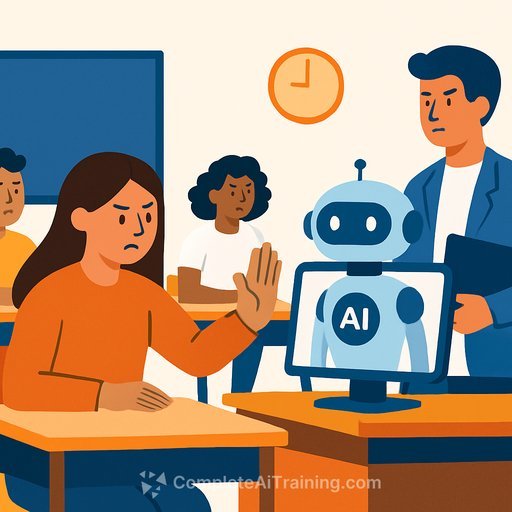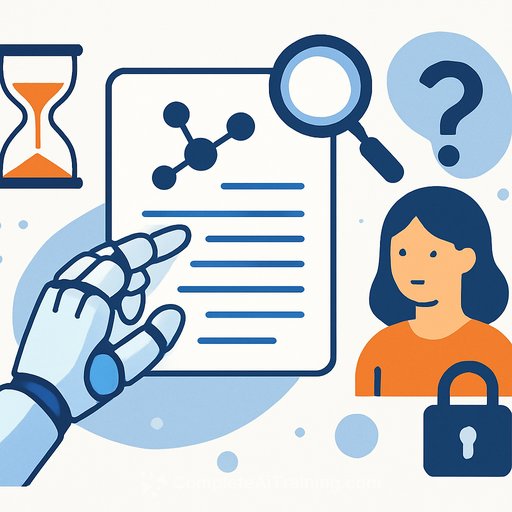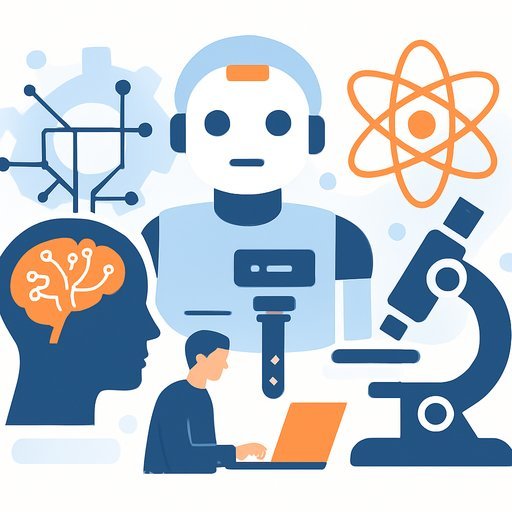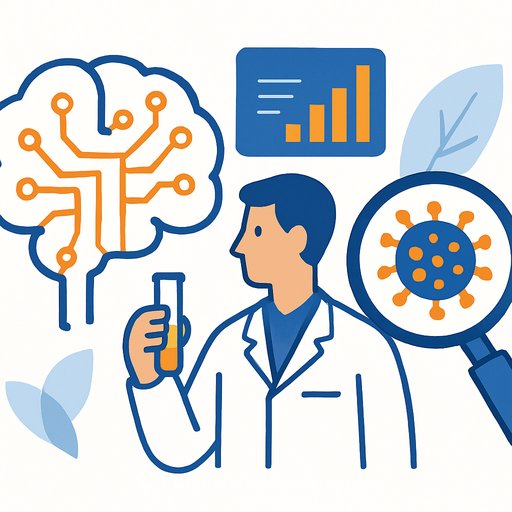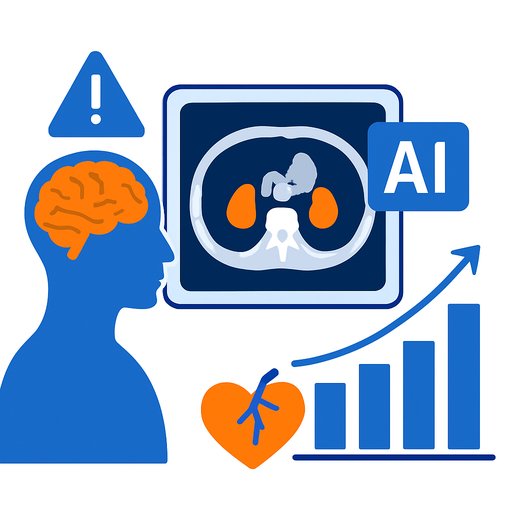AI in Academia Is Not Inevitable
Since late 2022, AI tools have moved into classrooms, labs, and governance with almost no resistance from leadership. Researchers argue that pushback is both possible and necessary-and that it aligns with what many students and staff already want.
History shows why restraint matters. From combustion engines to tobacco, universities have been used to legitimize products that later proved harmful. The pattern is familiar: industry money, rushed adoption, and long-term costs shifted to society.
Today, AI funding and partnerships can distort research agendas and mute criticism. As one researcher put it, "AI is often introduced into our classrooms and research environments without proper debate or consent."
What students and staff actually want
Students are not asking to outsource thinking. "Study after study shows that students want to develop these critical thinking skills... and large numbers of them would be in favor of banning ChatGPT and similar tools in universities," says one co-author.
The message is clear: keep the focus on learning, not automation. Tools can support practice, but they should not replace core academic work.
The risks we can't ignore
- Environmental costs: training and running large models consumes vast energy and resources.
- Data and labor issues: training on scraped content raises plagiarism and consent concerns; hidden human labor props up "automation."
- Deskilling: if students lean on AI for thinking and writing, they fail to build durable expertise.
- Misinformation: systems confidently produce errors and falsehoods at scale, undermining research quality.
"The uncritical adoption of AI can lead to students not developing essential academic skills such as critical thinking and writing," warns a co-author. Another adds, "We are told that AI is inevitable, that we must adapt or be left behind. But universities are not tech companies. Our role is to foster critical thinking, not to follow industry trends uncritically."
Policy moves university leaders can implement now
- Adopt an opt-in, course-by-course policy for generative AI, with clear disclosure requirements for any use.
- Require vendor transparency: model origin, training data sources, safety evaluations, energy usage, and data processing agreements.
- Set conflict-of-interest rules: disclose all AI-related funding, partnerships, gifts, and consulting before procurement or curriculum changes.
- Ban tools trained on copyrighted or sensitive data without consent or license; prefer audited, rights-respecting models.
- Run impact assessments for accessibility, bias, security, and academic integrity before deployment.
- Establish an AI governance board with student, faculty, staff, and union representation; publish minutes and decisions.
- Invest in campus computing that supports open, small, auditable models where feasible; set energy and emissions reporting for AI projects.
Course and lab practices for faculty
- Define allowed vs. prohibited AI uses for each assignment; require a short "AI use statement" detailing prompts, outputs, and edits.
- Assess process, not just product: outlines, notes, drafts, code reviews, and brief oral defenses reduce ghostwriting.
- Prioritize assignments that demand citation, reasoning chains, data provenance, and reproducibility.
- Use "no-AI" checkpoints at key stages (proposal, methods, proof sketches) to protect skill formation.
- In labs, track model versions, parameters, seeds, and prompts; store artifacts for verification and replication.
- Declare AI-related funding and affiliations in syllabi, preprints, talks, and grant applications.
What responsible AI use looks like
- Optional, documented, and bounded: it assists but does not author core scholarship.
- Transparent: sources, limitations, and edits are disclosed; claims are independently verified.
- Skill-preserving: it supports practice (e.g., brainstorming, formatting) while the thinking and writing remain human work.
Actions for students
- Learn the skills first; treat AI as a calculator you can live without. Use it sparingly and disclose it.
- Keep process logs (prompts, drafts, sources). If you can't defend it orally, don't submit it.
- Organize through student councils and committees to seek clear, consent-based AI policies on campus.
Where to read more
See the preprint hosted on Zenodo for the full position and references. For policy guidance, review UNESCO's recommendations for generative AI in education and research: UNESCO guidance.
Bottom line
AI is not destiny. Universities exist to build independent thinkers, not to validate industry narratives. Set boundaries, demand transparency, and keep human judgment at the center of research and teaching.
Your membership also unlocks:

